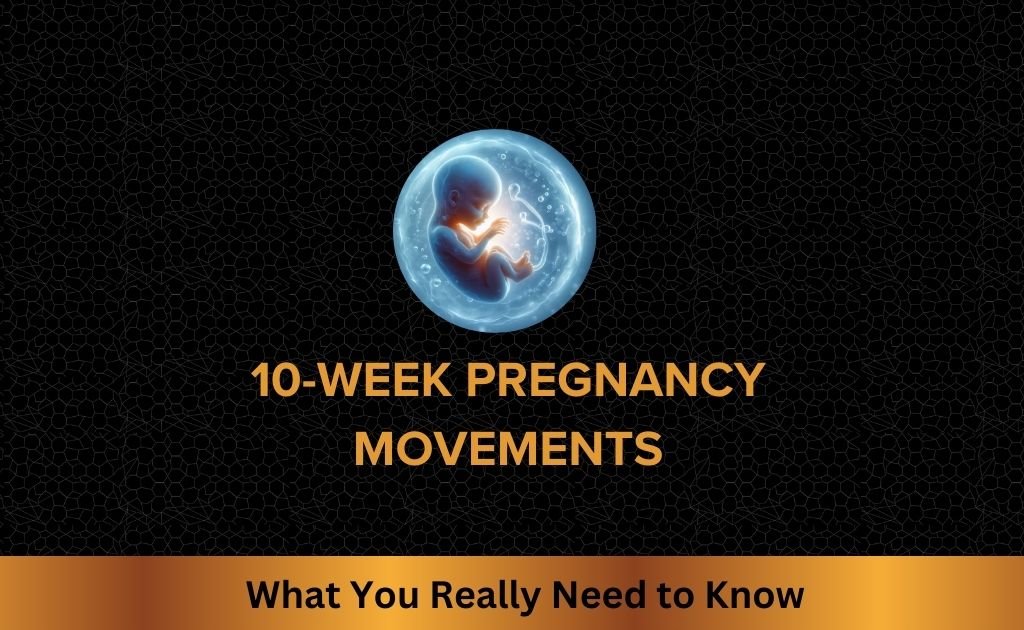10-Week Pregnancy Movements: What You Really Need to Know
Table of Contents
Pregnancy is a journey filled with wonder and excitement, and one of the most anticipated moments is feeling your baby move for the first time. Many expectant mothers eagerly await this milestone, often wondering about the surprising truth about 10-week pregnancy movements. Is it possible to feel your baby moving at just 10 weeks?
Let’s explore this fascinating topic and uncover what you can really expect during this early stage of pregnancy.
Understanding Fetal Development at 10 Weeks
At 10 weeks of pregnancy, your baby has already made significant progress in terms of growth and development. Here’s what’s happening with your little one:

- Size: Your baby is about the size of a strawberry, measuring approximately 1.2 inches long.
- Weight: They weigh around 0.14 ounces.
- Development: Major organs are forming, and the baby’s body is becoming more proportionate.
- Movement: The baby is starting to make small movements, but they’re still too tiny to feel.
It’s important to note that while your 10-week pregnancy baby is moving, these movements are typically not perceptible to the mother at this stage.
Can You Feel Baby Movements at 10 Weeks?
The short answer is: it’s highly unlikely. While your baby is certainly moving at 10 weeks, these movements are usually too small and subtle for you to feel. The uterus is still nestled deep within your pelvis, and the baby is surrounded by amniotic fluid, which cushions their movements.
Most women don’t start feeling fetal movements, also known as “quickening,” until much later in pregnancy. However, every pregnancy is unique, and some women may claim to feel slight flutters earlier than others.
What Does 10-Week Fetal Movement Look Like?
Although you can’t feel it yet, your baby is quite active at 10 weeks. If you could see inside your uterus, you might observe:
- Small twitches and jerks
- Stretching of limbs
- Subtle head movements
- Early reflexive movements
These movements are essential for your baby’s development, helping to strengthen muscles and bones.
When Do Most Women Start Feeling Movements?
While 10-week pregnancy movements are typically not felt, most women start feeling their baby move between 16 and 25 weeks of pregnancy. First-time mothers often feel movements later than those who have been pregnant before. Here’s a general timeline:
- 16-20 weeks: First-time mothers may feel subtle movements
- 13-16 weeks: Women who have been pregnant before might feel movements earlier
- 20-25 weeks: Most women consistently feel fetal movements by this time
Factors Affecting Fetal Movement Perception
Several factors can influence when and how strongly you feel your baby’s movements:

- Placenta position: An anterior placenta (located at the front of the uterus) can make it harder to feel movements early on.
- Body composition: Women with more abdominal fat may feel movements later.
- Activity level: You’re more likely to notice movements when you’re resting or lying down.
- Pregnancy experience: Women who have been pregnant before often recognize movements earlier.
The Importance of Fetal Movements
While you may not feel 10-week pregnancy movements, fetal movement is a crucial indicator of your baby’s well-being throughout pregnancy. As your pregnancy progresses, paying attention to your baby’s movements can help you:
- Bond with your baby
- Monitor your baby’s health
- Identify potential issues early
Learn more about the importance of fetal movements
Tracking Your Baby’s Movements
Once you start feeling consistent movements (usually after 28 weeks), it’s a good idea to start tracking them. Here’s how:

- Choose a time when your baby is usually active.
- Lie down or sit comfortably.
- Count the number of movements you feel in an hour.
- Aim for at least 10 movements in 2 hours.
Remember, every baby has its own pattern of movements. What’s important is to familiarize yourself with your baby’s normal pattern.
When to Consult Your Healthcare Provider
While you won’t be feeling 10-week pregnancy movements, it’s important to know when to seek medical advice regarding fetal movement in later stages of pregnancy:
- If you notice a significant decrease in movements after 28 weeks
- If you don’t feel 10 movements within 2 hours during your counting sessions
- If you have any concerns about your baby’s movements
Always trust your instincts and don’t hesitate to contact your healthcare provider if you’re worried.
Conclusion
The surprising truth about 10-week pregnancy movements is that while your baby is indeed moving, you’re unlikely to feel these tiny movements just yet. As your pregnancy progresses, you’ll have plenty of opportunities to experience and enjoy your baby’s movements. Remember, every pregnancy is unique, and there’s a wide range of normal when it comes to feeling fetal movements.
While you eagerly await those first flutters, focus on taking care of yourself and your growing baby. Eat a balanced diet, stay hydrated, get plenty of rest, and attend all your prenatal appointments. Before you know it, you’ll be feeling those magical kicks and punches, creating a special bond with your little one long before they’re born.
Have you experienced any unusual sensations during your early pregnancy? Share your experiences in the comments below and join the conversation with other expectant mothers!







